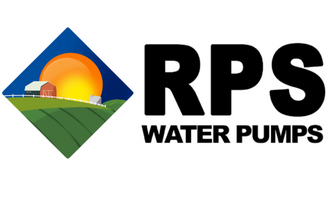

Answering Your Water Pump Questions
with RPS Engineer Mike

What is the difference between a 1 HP and 1.5 HP water pump?
If you’re new to the well pump business, there’s a lot of new terminology to get used to. Total Dynamic Head (TDH), circuit breaker, pressure switch and the like are pretty unique terms. But Horsepower sounds pretty simple at first glance, there’s just more power as you increase it, right?
Measuring horsepower in well pumps
At its core, HP is a measurement of raw power output (i.e., how quickly ‘work’ gets done). In the U.S., 1HP is equivalent to about 746 Watts, a standard unit of electrical power.
So, it makes sense that as you increase the running power of your well pump, you’ll increase the pump power output values (namely GPM and TDH). But remember that moving more water often results in more electricity and energy consumption.
GPM is a measurement of liquid velocity (in this case, the water's flow rate), and TDH is a measurement of the water pressure (and subsequently how high it can flow against gravity). Depending on how a deep well pump is built, increasing HP can increase GPM, TDH, or both! You need to analyze the pump curves for the pumps you’re interested in.
1 HP vs 1.5 HP Submersible Pump Spaces
When looking at our 1HP water pump, you can notice that we recommend them for a max TDH of 500’, and a max water flow rate of GPM of 62. Our 1.5HP pumps have both higher max TDH and GPM. Of course, these aren’t the same pumps, but rather their construction is geared towards one or the other metric output.
As a general rule, high head pumps are slightly longer than high GPM pumps, but the key thing to understand is that increasing your HP does not necessarily increase TDH or GPM. You need to analyze the pump curves for the pumps you’re interested in and ensure proper circuit breaker sizing for safety and optimal performance.

Image 1: Pump Curves of our 05RPS Series
With our 05RPS series, for example, you can see that our 1HP 5RPS10 and 1.5HP 5RPS15 are fairly close to each other, relatively speaking. The max head difference is about 200’, and max GPM cuts out at 8 for both submersible well pumps.
Let’s say you need a more powerful pump doing at least 5 GPM at 400’ of lift, the 1HP can do the job and help you save money. But if you need higher GPM at the same amount of lift, or vice-versa, you’d need to increase the size and consider the right pressure tank to maintain consistent flow.

Image 2: Pump Curves of our 25RPS Series
These pump curves include a 1HP (25RPS10) and 1.5HP (25RPS15) pump, but you can see that they have lower TDH maximums compared to the pumps above. Their design is primarily for high velocity low-head applications, potentially in the irrigation or livestock sectors.
Both submersible well pumps cut out around 32 GPM, but the 1.5HP would be a necessity if you required greater than about 250’ to lift water.
So there you have it, both 1HP and 1.5 HP well pumps are in the middle of the TDH and GPM ranges in terms of what we sell. They are often used in residential water pumps with higher TDH or GPM requirements, with the 1.5HP being a noticeable upgrade in power output and energy efficiency.
Choose the right pump with confidence
If you have a 1HP pump and are thinking about sizing up, give us a call at (855)-374-1296 or email us at help@ruralpowersystems.com. We can chat through your options and see if another 1HP well pump would be a better fit, or if a more powerful model would be suitable.
We don’t make any commission, so there’s never any pressure to buy right away! We hope to hear from you soon, and look forward to chatting more about our submersible well pumps.
Take the Next Step to Water Independence
Learn More About Water Pumps
-
 If you’re considering replacing a well pump and it’s your first time, you may have questions about long it may take. We often say a full install only has to be a couple of hours, but is that actually accurate?Read now
If you’re considering replacing a well pump and it’s your first time, you may have questions about long it may take. We often say a full install only has to be a couple of hours, but is that actually accurate?Read now -

How many GPM is a good well pump?
Water needs can differ significantly depending on circumstances, and you may need a submersible well pump with a significantly higher or lower flow rate, depending on household size, irrigation needs, and sprinkler use.Read now -

Can you put in too big of a pressure tank?
When it comes to sizing a well pressure tank, there really isn’t an upper limit as to how big of a tank you can put in. There are some pros and cons to different size pressure tanks, and they can have an impact on the lifespan of your pump.Read now





